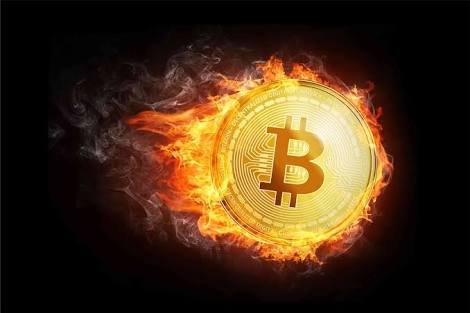
1.Satoshi Nakamoto is a fictitious name of the Bitcoin creator or creators.
Nakamoto is believed to own around 1 million Bitcoins worth $2 Billion.
No single entity or government has control over the Bitcoin currency.
There is a finite number of bitcoins, 21,000,000.
1% of the Bitcoin community controls 99% of the world’s wealth.
Since March 2015, Bitcoin transaction fees are up by 1289%.
69% of all banks in the world are experimenting with permissioned blockchains.
Bitcoin value has multiplied 879,999 times from 2010 to 2017.
64% of Bitcoins have never been used and might never be used.
The Federal Bureau of Investigation (FBI) owns 1.5% of the world’s Bitcoins.
Around 5% of the Bitcoin economy is active on Silk Road online black market.
The world’s largest Bitcoin exchange MT Gox crashed in 2014 and prices fell by 40%.
Potential annual savings for banks utilizing blockchain technology is $8-12 million.
Only 807 people worldwide have ever declared Bitcoin income for tax purposes.
There are 7 Bitcoin debit cards for businesses and individuals.
The first big Bitcoin acquisition was worth $11.5 million for 126,315 Bitcoins. This is known as the SatohiDice.
A person by the name Nakowa won 11,000 Bitcoins worth $1.3M back in 2013 (worth over $47M today) on a gambling site.
Chinese mining pools control more than 70% of the Bitcoin network’s collective hashrate (the speed at which a computer is completing an operation in the Bitcoin code).
Bithumb, the 4th largest Bitcoin exchange was hacked for billions of dollars in July 2017.
In May 2010, 10,000 Bitcoins would get you two Pizzas. In May 2017, 1 Bitcoin was worth 20 million Pizzas.
Refunds are not possible on Bitcoin transactions
Bitcoin transactions are measured in Satoshi/byte. 1 Satoshi = 0.00000001 Bitcoin.
James Howell lost 7500 Bitcoins worth £4 million by throwing his hard drive which had his Bitcoin wallet.
Bitcoins generated as a reward for mining halves every 4 years until all Bitcoins are fully mined.
A new block of coins is “solved” every ten minutes which leads to about 6 new discoveries of Bitcoins per hour.
Unlike conventional currency, Bitcoins are based on mathematics and are decentralized.
All data from Bitcoin transactions are transparent and can be seen on Blockchain.
By July 2017, 16.4 million Bitcoins were in circulation.
The 4000th Bitcoin worth $3 million was donated to Wikileaks in December 2016.
The Bitcoin network is more powerful than 500 supercomputers put together.
In 2016, someone accidentally sent $137,000 worth of Bitcoins instead of $5 with no way to get it back.
17 million Bitcoins are expected to be in use in 10 years.
The 21 million Bitcoin limit is expected to expire in 2140.
Alphabay Phisher Phishkingz claims to have made $1 million by stealing Bitcoins over a period of 14 months.
University of Nicosia, Cyprus, was the first university to accept Bitcoins to pay for academic fees.
Virgin Galactic, theoretical space travel adventure club accepts Bitcoins.
You can earn extra Bitcoins by playing Blockchain game.
Florida circuit court dismissed a money laundering case in 2016 saying Bitcoin is not money as per state regulations.
Bitcoin has surged up 162% in 2017 only.
In August 2012, a Bitcoin Ponzi scheme by the name Bitcoin Savings and Trust was shut down and people lost 700,000 Bitcoins in total.
Microsoft, Dell and Expedia are examples of companies that accept Bitcoins as payment.
Austin Craig and Beccy Bingham showed how one can survive 90 days on Bitcoins alone.
The number of merchants accepting Bitcoins grew from 36,000 to 82,000 in 2014.
Ethereum with a market cap of 18.7 billion coins and Litecoin with a market cap of 2.27 billion coins are believed to be Bitcoin successors.
90% of all Bitcoin addresses have little or no real value at all.
Roger Ver (52 million Bitcoins), Charlie Shrem (45 million Bitcoins) and Dave Carlson (35 million Bitcoins) are some of the Bitcoin millionaires today.
There are 1354 Bitcoin ATMs worldwide, in 55 countries by 21 ATM producers and 231 operators.
Bitcoin has value added tax (VAT) exemption on Belgium.
Swiss classified digital currency as a foreign currency.
Bitcoin is illegal in Vietnam, Bolivia, Kyrgyzstan, Iceland, Ecuador, Bangladesh and Thailand.
The world of Bitcoins is fascinating and truly amazing. Hopefully, you learnt a thing or ten from this list.
Coins mentioned in post: